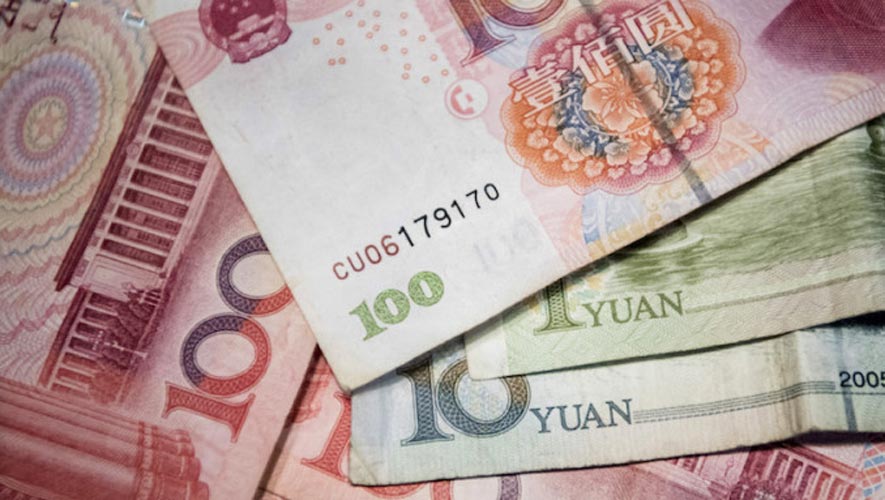As more Chinese investment and trade enter Cambodia, the usage of yuan is expected to grow as banks facilitate cashless transactions
For the latest Cambodian Business news, visit Khmer Times Business
Although economic ties between China and Cambodia have strengthened, Chinese yuan inflow in the Kingdom’s banking sector remains relatively small compared to the US dollar.
Last year, the use of Chinese yuan in cross-border trade and transaction with China amounted to just two percent while deposit and credit in yuan in the banking system was about one percent.
“Chinese yuan inflow is especially generated by tourism, trade and investment,” National Bank of Cambodia director-general Chea Serey tells Capital Cambodia via email.
Despite the small percentage, Chinese yuan has contributed to Cambodia’s economic growth. She cites the example of Chinese direct investment which represented 40 percent in 2018 of the total foreign direct investment (FDI) to Cambodia. In 2017, trade between the countries made up 23 percent of total trade while 34.8 percent of total tourist arrivals were Chinese.
“The yuan inflow depends on the size of the trade, investment and tourism between the two countries and the willingness to transact in yuan,” Serey adds.
Cambodia’s foreign currency reserve comprises US dollar, euro, yen, pound sterling and yuan. Understandably, the US dollar is the dominating currency in the Cambodian economy. Therefore, if there are issues with the dollar, Cambodia can expect to suffer the consequences.
“Our foreign reserves amount to $10.5 billion but choosing the composition of currency as foreign exchange reserves would depend on trading activities between Cambodia and the rest of the world,” she says.
NBC gross international reserves are in different currencies but dominated by US dollar, given its dollarised economic context, she adds.

Now, Chinese nationals including investors can use the yuan in Cambodia through the banking system and in cross-border trade with Cambodia.
The initiative of allowing the Chinese and Cambodian companies to trade in yuan and riel is to avoid risks associated with currencies.
Growth in interest in yuan transactions
The central bank also allows certain banks and financial institutions to operate in yuan, as in the case of Bank of China (BOC) and Industrial and Commercial Bank of China (ICBC). They can act as clearing houses. To date, 15 commercial banks are allowed to operate and transact in yuan.
Another 12 commercial banks are interested to join NBC to enable payments in yuan because they see an opportunity while being able to attract Chinese tourists.NBC allows the use of yuan through Chinese-based payment apps Alipay, UnionPay, Wechat Pay to operate in Cambodia.
“We support and allow the use of Chinese yuan under the payment in the banking system which is cashless,” says Serey. However, the use of yuan is limited to the financial institution. Its use is not allowed in the retail market. “This is related to both the government and NBC’s stand to promote the local currency,” Serey stresses.
ICBC Ltd marketing head Ly Sokchou says that the transaction trend in yuan has increased since early this year but it is relatively small.
“We have about 10 transactions totalling one million yuan every month. Although it is small for ICBC, we have seen it increase over time,” she says via telephone.
A majority of Chinese companies that transact in yuan are related to construction or real estate businesses in Cambodia.
Sokchou says ICBC also provides loans in yuan but there is no demand locally, so far. The bank has point-of-sale (POS) transaction machines that connect with Wechat Pay, enabling customers including tourists to pay in yuan.
“If more Chinese tourists come to Cambodia, there would be an increase in yuan (foreign reserves) in Cambodia as it would be converted to local currency or US dollar,” she adds.
Cambodia Chamber of Commerce vice president Lim Heng tells Capital Cambodia that Chinese yuan transaction would not reduce the influence of US dollar in Cambodia.
“Chinese yuan transactions occur in the banking sector while US dollar usage is prevalent in the retail market and economy,” he says.
Ten percent of the chamber’s 5,000 members conduct business in yuan. They are involved in the hospitality sector, and cross-border trade.
Local currency settlement framework
Cambodia supports the establishment of local currency settlement frameworks in Asean which are aimed at reducing transaction costs and foreign exchange risks due to volatility faced by currencies in advanced economies.
“Asean central banks including NBC support the initiative of using local currencies in settlement of trade and other areas in the region. In fact, our agreement with Bank of Thailand in Financial Innovation and Payment Systems, supports commercial banks in both countries to introduce interoperable payments through quick response (QR) code,” Serey says.
The facility promotes the use of local currency, making payment services more effective and efficient in supporting bilateral trade and investment. NBC plans to set up a similar initiative with the State Bank of Vietnam, she adds.




